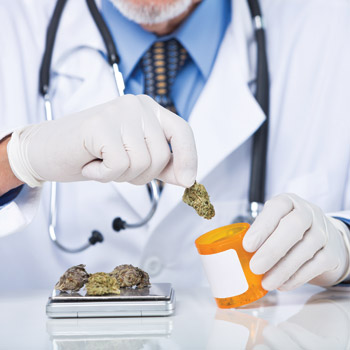Boxed warning added to gout drug, more ARBs recalled
This column reviews details on recent recalls, warnings, and approvals.
Recalls and warnings
A boxed warning added to febuxostat (Uloric) alerting clinicians and patients about an increased risk of death. The FDA approved febuxostat in 2009 to treat adults with gout. Based on a comprehensive review of results from a safety clinical trial, the agency has concluded that there is an increased risk of cardiovascular and all-cause mortality with the drug compared to allopurinol. Clinicians should reserve febuxostat for use only in patients who do not tolerate allopurinol or those in whom allopurinol treatment is not successful. They should also counsel patients about the drug's cardiovascular risks and advise them to immediately seek medical attention if they experience symptoms such as chest pain, shortness of breath, or rapid or irregular heartbeat.

A recall of 87 lots of losartan tablets USP (25 mg, 50 mg, and 100 mg) by Camber Pharmaceuticals, Inc., due to the detection of an impurity. Trace amounts of N-nitroso-N-methyl-4-aminobutyric Acid (NMBA), a potential human carcinogen, were found in recalled products. This is the first recall of angiotensin II receptor blocker (ARB) drug products resulting from the presence of NMBA, the third type of nitrosamine impurity detected in these medicines. The two other impurities found in multiple generic ARBs are N-nitrosodimethylamine (NDMA) and N-nitrosodiethylamine (NDEA).
An expanded recall of 38 lots of amlodipine/valsartan tablets USP (10 mg/160 mg) and valsartan tablets USP (40 mg, 80 mg, 160 mg, 320 mg) by Aurobindo Pharma USA, Inc., and Acetris Health, LLC, due to the detection of a nitrosamine impurity. Recalled products contain trace amounts of NDEA, a probable human carcinogen.
A recall of one lot of losartan potassium/hydrochlorothiazide combination tablets (100 mg/25 mg) by Macleods Pharmaceuticals Limited due to the detection of a nitrosamine impurity. Affected products contain trace amounts of NDEA.
A class I recall of dual-chamber implantable pulse generators by Medtronic, Inc., due to the possibility of a software error that can result in a lack of pacing. The recall includes model names Adapta, Versa, Sensia, Relia, Attesta, Sphera, and Vitatron (A, E, G, and Q series). The 13,440 devices were manufactured from March 2, 2017, to Dec. 18, 2018, and distributed in the U.S. from March 6, 2017, to Jan. 7, 2019.
An alert about an increased risk of pulmonary embolism and death with a particular dosing regimen of tofacitinib (Xeljanz, Xeljanz XR) in patients with rheumatoid arthritis. A safety trial found that patients with rheumatoid arthritis who received a 10-mg twice-daily dose of the drug had an increased occurrence of pulmonary embolism and death compared to those who received a 5-mg twice-daily dose or a tumor necrosis factor inhibitor. The 10-mg twice-daily dosing regimen is FDA-approved for patients with ulcerative colitis, but not for those with rheumatoid arthritis. Clinicians should follow the recommendations in the drug prescribing information for the specific condition they are treating.
A class I recall of certain models of LIFEPAK 15 monitor/defibrillators by Physio-Control, Inc., due to risk of device lockup after a shock is delivered. In the event of a freeze, the device cannot provide defibrillation therapy until it is reset. The resulting delay in shock delivery has resulted in serious patient injury, including death. The recall includes 8,164 devices manufactured and distributed nationwide from March 21, 2013, to July 18, 2016.
A class I recall of certain lots of sterile saline and sterile water products by Smiths Medical due to potential exposure to infectious agents as a result of leaking containers used to package the finished products. While the initial recall was in September 2017, the FDA is auditing the recall to ensure that all affected products have been returned. The recall includes nearly 1 million products distributed from Aug. 30, 2013, to Feb. 10, 2017.
A warning not to use thermography in place of mammography to detect, diagnose, or screen for breast cancer. Some health spas, homeopathic clinics, and other health care facilities are using thermography, a noninvasive tool that produces images with an infrared camera, inappropriately as a standalone tool for breast cancer screening or diagnosis. There are no valid scientific data demonstrating that thermography devices are an effective screening tool for any medical condition, including breast cancer. Mammography is the most effective breast cancer screening method and the only method proven to increase the chance of survival through earlier detection, the FDA said.
Approvals
Marketing of the Tandem Diabetes Care t:Slim X2 insulin pump for patients with diabetes. The pump works by delivering insulin under the skin at set or variable rates and can be digitally connected to automatically communicate with and receive drug-dosing commands from other devices. The alternate controller-enabled infusion pump is the first interoperable pump, which means that it can be used with different components of diabetes therapy systems, including automated insulin dosing systems, continuous glucose monitors, blood glucose meters, and other electronic devices. The FDA reviewed data on dosing accuracy and reliability and assessed the pump's ability to safely communicate with external devices. Risks associated with the pump are similar to those with other infusion pumps and include infection, bleeding, pain, and skin irritations. Incorrect drug delivery could potentially result in hypoglycemia, hyperglycemia, and diabetic ketoacidosis, and loss of communication between devices could pose cybersecurity vulnerabilities.
Caplacizumab-yhdp injection (Cablivi), in combination with plasma exchange and immunosuppressive therapy, to treat adults with acquired thrombotic thrombocytopenic purpura. Efficacy of the drug was shown in a randomized, placebo-controlled trial of 145 patients, who all received the current standard of care (plasma exchange and immunosuppressive therapy) in addition to their assigned treatment. Compared to patients who received placebo, those treated with the orphan drug saw faster improvements in platelet counts and had better outcomes, such as a lower incidence of disease recurrence and disease-related death. Common side effects of the drug were headache and bleeding from the nose or gums. The medication's prescribing information warns patients and clinicians about the risk of severe bleeding.
Miscellaneous
A letter to clinicians regarding postapproval study results for the Abiomed Impella RP System, which was approved in September 2017 to provide temporary right ventricular support without open-chest surgery. The interim results suggest a higher mortality rate for patients treated with the system than the rate observed in premarket clinical studies. While the FDA is concerned about the high mortality rate, it maintains that the benefits of the system continue to outweigh the risks when used for the approved indication in appropriately selected patients.
A letter to clinicians about the association between all breast implants and breast implant-associated anaplastic large-cell lymphoma. The FDA has received reports indicating that patients with breast implants have an increased risk of developing the disease within the scar capsule adjacent to the implant. While the majority of patients who have developed the disease had textured implants, there have been reports of patients with smooth-surfaced implants as well. To date, the FDA has received at least 660 reports of breast implant-associated anaplastic large-cell lymphoma. The agency recommends that clinicians be aware of the disease, particularly in patients with new swelling, lumps, or pain around breast implants, and report any cases to the FDA.
A safety communication alerting clinicians and patients that the safety and effectiveness of robotically assisted surgical devices has not been established for use in mastectomy procedures or the prevention or treatment of cancer. To date, no robotically assisted surgical devices have been approved by the FDA based on cancer-related outcomes, such as overall survival, recurrence, and disease-free survival.
First-time generic approvals
Fluticasone propionate and salmeterol inhalation powder USP (100 µg/50 µg, 250 µg/50 µg, 500 µg/50 µg) to treat asthma in patients ages 4 years and older; the 250 µg/50 µg strength is also indicated for the maintenance treatment of airflow obstruction in patients with chronic obstructive pulmonary disease. (Brand name: Advair Diskus)
Ingenol mebutate gel (0.05%, 0.015%) for the topical treatment of actinic keratosis. (Brand name: Picato Gel)
Sirolimus oral solution (1 mg/mL) for the prophylaxis of organ rejection in patients ages 13 years of age and older receiving renal transplants. (Brand name: Rapamune)
Note: The FDA states that drugs are not always commercially available immediately after approval.




